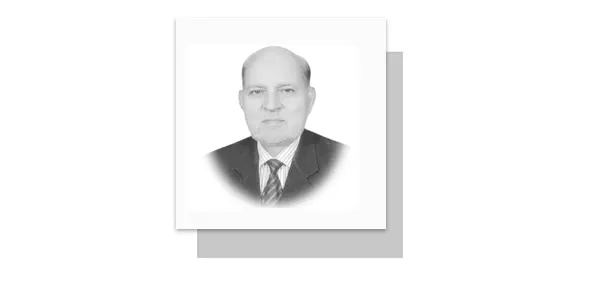IT is a well known fact that India, Pakistan’s adversary, without any warning attacked Pakistan on the morning of 6 September 1965, by blaming Pakistan for supporting the then uprising of the people of the Indian illegally occupied State of Jammu and Kashmir (IIOJ&K). The main thrust of the Indian armed forces offensive was in the Lahore and Sialkot sectors with their ambitious objective to capture Lahore and Sialkot, have a pause to enjoy drinks at the Lahore Gymkhana Club, and go for capturing the grand trunk Road (GT Road) to cut Pakistan into two pieces. That plan of the Indian armed forces and its approval by the Indian government only showed that while planning, they had neither comprehended the capabilities and resolve of Pakistan’s highly spirited armed forces and nor realized the national strength and impermeable unity of Pakistan.
In response, while Pakistan’s valiant defence forces stood like a rock before the Indian armed forces, blunted their offensive and tore apart their plan of capturing Lahore and Sialkot and having drinks at the Lahore Gymkhana Club. Just in the first few days of the war, while the Pakistan Army severely damaged the Indian armed forces ground fighting capabilities, like tanks and guns, Pakistan Air Force destroyed and sufficiently incapacitated Indian major airbases and maximum aircraft, the Pakistan’s Navy went for a severe attack on Indian naval bases and destroyed/damaged its valuable warships and submarines, which the Indian armed forces had never expected.
At the beginning of the Indian armed forces’ offensive, the then President of Pakistan, Field Marshal Muhammad Ayub Khan, made a historic motivational address to the nation, and the most impressive and thrilling sentence he uttered for giving a warning message to India was that you will be given a proper answer to tell you that to which nation you have challenged. The President’s speech motivated the nation in such a magnificent way that the whole nation stood like an iron wall before the enemy, as the people from all sectors of life immediately volunteered to defend the country by helping its defence forces, wherever required.
Especially the young students in the colleges and universities were ready to do any task related to the defence of the country against India’s aggression. And, in the villages the people were seeing off the reservist retired army men, who were called to join the war theatre, by garlanding them and chanting motivational slogans. The people in the cities and the villages were so thrilled that they would get on their rooftops to witness the dog fight of the Pakistani and Indian aircraft in the skies, without caring for their own safety. To boost the civil defence department, the young people volunteered in heavy numbers.
In the battle field the defence forces gave a heroic performance, and many officers and men of the Army, Air Force and Navy gave their lives, while defending the country and causing colossal damage to the Indian armed forces. Within a week’s time, Pakistan’s defence forces started their offensive and captured a large chunk of Indian territory. Ultimately, on 23 September 1965, the war came to an end with the UN/the then Soviet Union’s mediation. To acknowledge their heroic performance, many officers/soldiers and Shaheeds were given awards like Nishan-Haider (NH), Sitara-i-Jurat (SJ) and Tamgha-i-Jurat (TJ).
During the 1965 war, Pakistan performed much better than India because Pakistan was economically a strong country and its people were economically well off as the prices of the daily use commodities were very low and the Pakistani rupee was very strong in relation to the US dollar and the unemployment was minimal. Also, Pakistan was being termed as near to becoming an Asian Tiger, its defence forces were very well equipped, trained and had a very high morale, the national unity was exemplary. This was because President Ayub Khan had selected a good team of qualified and efficient ministers to serve Pakistan, and he himself had worked very hard.
In view of the above presented picture of the 1965 war related scenario, it can be said with confidence and pride that 6 September is a symbol of Pakistan’s national power and resilience, the strength and morale of its defence forces and its national unity, and national high morale. And, Pakistan’s influential foreign policy backed by a strong economy had projected Pakistan’s good image abroad. Therefore, it is a matter of a lot of pride and pleasure to celebrate 6 September every year, as a victory day in the 1965 war with India, with a lot of zeal and enthusiasm.
No doubt at present, the people of Pakistan are facing severe economic difficulties, because of the post Ayub era mismanagement of the economy by the successive governments, due to which Pakistan’s economy is currently loaded with heavy foreign loans with no capacity to payback the loans without taking further foreign loans, which has caused heavy devaluation of the Pakistani rupee and caused very high inflation/high prices of daily use items, which are unaffordable.
Therefore, at this juncture, the celebration of 6 September as a victory day against 1965 Indian aggression, also serves us as a good reminder, that for bringing back Pakistan to the days of the booming economy and national unity (1960s), it is necessary that its leadership and the nation realize that they have to work very harder with honesty and patience, shun corruption, elect honest and good people to serve Pakistan and its people, the current/future governments have to select good teams of dedicated and capable ministers to efficiently handle the economy, and make its major sectors more productive/profitable and increase the exports/forex reserves, to ensure stabilization of the Pakistani rupee and market prices to help ease people’s life and make Pakistan economically a self-reliant country, to further strengthen its defence forces and to strengthen internal unity to regain Pakistan’s national strength and harmony.
—The writer is also a former Research Fellow of IPRI and Senior Research Fellow of SVI Islamabad.










